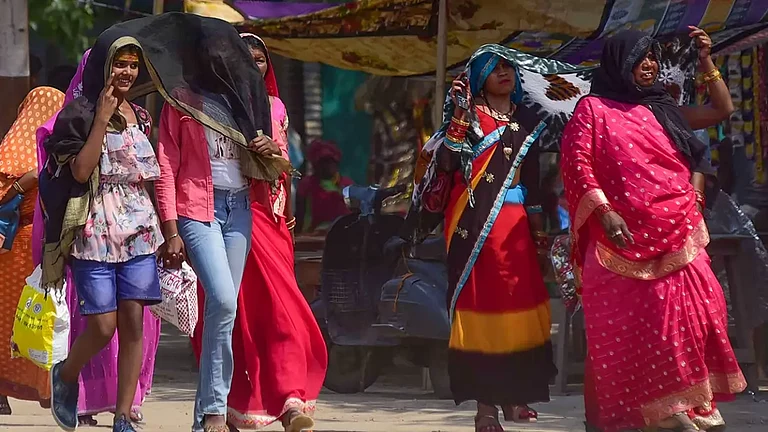For 11-year-old Rahul Verma (name changed), Diwali celebrations in his village near Khargone, Madhya Pradesh, turned tragic within seconds. What began as playful curiosity ended in a blinding flash that left him permanently blind in one eye.
Rahul’s family had ordered a carbide gun — a crude pipe device that creates loud explosions by mixing calcium carbide and water — from an online marketplace after watching videos on social media. “He was excited; it looked harmless in the videos,” said his father. “We had no idea it could explode with such force.”
When the device failed to ignite, Rahul bent over to inspect it. The gun detonated, sending shards of metal and plastic into his face. Doctors at AIIMS Bhopal later confirmed that his retina had ruptured beyond repair.
“This is not a firecracker — it’s a chemical bomb,” said Dr. Partha Biswas, President of the All India Ophthalmological Society (AIOS). “Children are particularly at risk because these devices are often marketed as toys. A single blast can cause irreversible blindness or facial disfigurement.”
Eye experts say Rahul’s case reflects a disturbing trend seen this festive season, with dozens of similar incidents reported across Madhya Pradesh and Bihar. Videos demonstrating how to assemble or ignite carbide guns have been circulating widely on platforms such as YouTube and Instagram, often without age restrictions or safety warnings.
In Bhopal alone, over 150 cases were reported, with more than 60 individuals hospitalized, predominantly children aged 8 to 14. Tragically, at least 14 children have lost their eyesight, and many others have sustained permanent damage. Hospitals, including AIIMS and Hamidia, are overwhelmed with cases requiring urgent medical intervention, including surgeries and corneal transplants.
Madhya Pradesh Chief Minister Mohan Yadav has now directed officials to immediately prohibit the illegal manufacture, sale, and use of carbide guns.
Chief Secretary Anurag Jain subsequently issued orders classifying carbide guns as “prohibited devices,” mandating that violators be booked under the Arms Act (1959), the Explosives Act (1884), and the Explosive Substances Act (1908).
Similar incidents have also been reported from Bihar and Delhi, raising concerns that the trend is spreading beyond a single State.
Alarmingly, authorities are confronting this menace yet again, as reports show these preventable tragedies have occurred before.
A study by ICMR Bhopal had earlier cautioned that the combination of online content and easy access to cheap raw materials was driving the spread of such makeshift devices. The study documented several cases of vision-threatening injuries among young males in Khargone district.
The authors emphasised that without immediate public education, tighter controls, and digital monitoring, such preventable injuries could escalate into a recurring national health hazard.
Carbide guns are typically made from plastic or tin pipes that use a mix of calcium carbide and water to create explosive sounds. When the explosion fails to go off, children often peer into the barrel — a fatal mistake that can rupture the retina or cause severe facial burns.
Alarmed by the spate of injuries, the AIOS has urged both Union and State governments to impose an immediate nationwide ban on the manufacture, sale, and online promotion of carbide guns and their components.
The doctors’ body said in a statement on Friday that these gadgets can “cause irreversible burns, blindness, and disfigurement and must be banned across the country.”
The AIOS also called for strict enforcement of the ban, registration of FIRs against violators, and urgent public-awareness campaigns to warn parents and children about the risks. It also advised hospitals to remain on alert for eye-injury cases during the festive season.
“With Chhath Puja and other celebrations approaching, continued use of such hazardous devices could lead to another wave of preventable blindness and severe facial injuries,” the AIOS warned.
Dr. Jeewan Singh Titiyal, senior ophthalmologist and former Chief of the RP Centre for Ophthalmic Sciences, AIIMS Delhi, too raised serious concern over the growing number of such injuries.
“There has been a large number of cases of explosions this Diwali affecting the eyes due to carbide guns,” he told The Health Outlook. “These chemical injuries often involve the entire face. Some of these celebrations are unsupervised and pose serious health hazards. Life-long vision can be lost in just a minute of fun.”
Dr. Titiyal added that manufacturers fail to provide adequate safety warnings and urged stricter checks on social media content promoting such products.



























